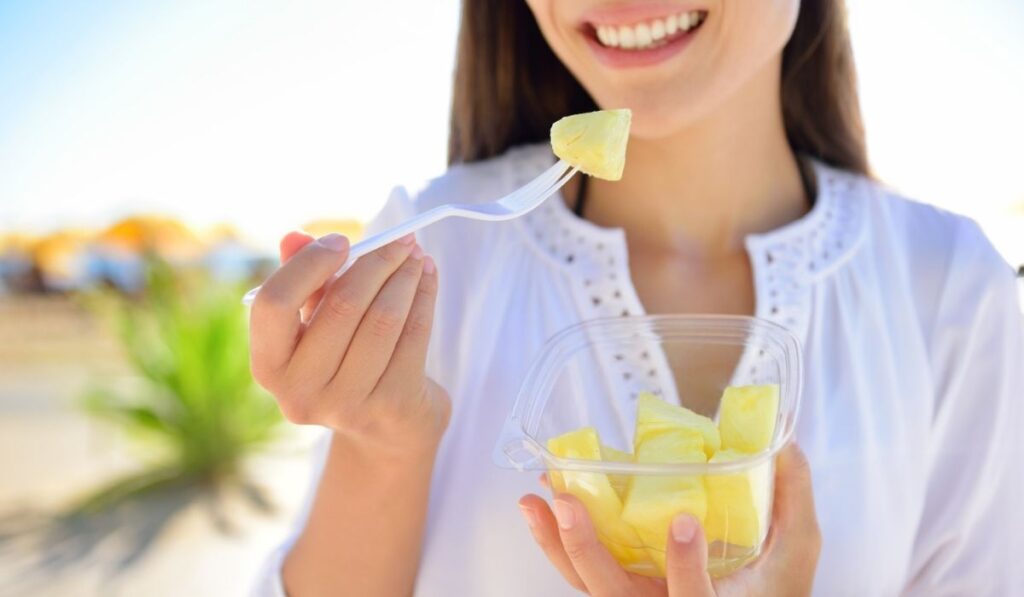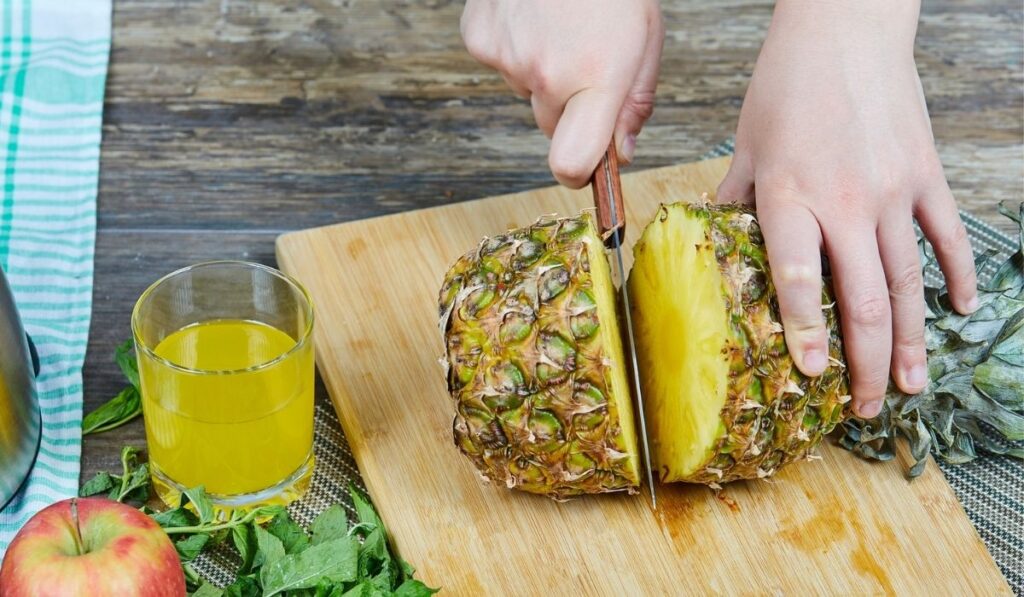When you leave foods on your teeth, they accumulate over time and lead to plaque, which can cause tooth decay. However, some foods are dentist-approved because they help make your teeth clean. There are merits and demerits to eating pineapple, but is pineapple bad for your teeth?
Eating pineapple actually helps whiten your teeth. It contains an enzyme that removes plaque and works as a natural stain remover. Due to the high levels of acid in pineapple, it may weaken your enamel and cause dental erosion, but rinsing with water after eating it will prevent this.
After eating fresh pineapple, it’s vital to ensure that you take care of excess acidity by chewing sugar-free gum or rinsing out your mouth with some water. However, pineapple also contains Bromelain, an enzyme that can break down proteins that are responsible for causing teeth stains. This means that pineapple can make your teeth whiter and satisfy your sweet tooth at the same time.
The Effects of Pineapple on Your Teeth

The well-known plaque-fighting capabilities of pineapple come from the enzyme Bromelain, a compound found in the fruit, which both cleans your teeth and breaks up plaque.
Bromelain has many benefits including its use as a complementary treatment of inflammation. It’s also used as a topical to ease pain from wounds and burns.
However, consuming acidic foods and drinks like pineapple can lead to dental erosion that is harmful to the teeth. Contact with these acids can demineralize and weaken the tooth enamel with time, resulting in sensitivity, discoloration, and eventual decay.
It’s advisable to use a straw when drinking fruit juice since it helps keep the liquid off of your teeth. In addition, rinsing your mouth with water after eating pineapple can aid in the dilution of harmful acids.
Ensure that you wait for about half an hour before brushing your teeth to allow the enamel to remineralize after the “acid bath” of eating pineapple.
Does Pineapple Make Your Teeth Whiter?
Some chemicals, known as proteases, help your body break down proteins and release important nutrients into the digestive system.
Proteases, in addition to boosting digestion, also have anti-inflammatory capabilities, which are crucial during the treatment of injuries and infections.
Fresh pineapple contains rich amounts of a protease known as Bromelain. The enzyme is present in both ripe and unripe pineapple, as well as in the stem and leaves of the fruit.
Bromelain can break down the glycoprotein that forms on the surface of the enamel, helping to remove stains and discoloration and making your teeth whiter.
Is Pineapple Bad for Enamel?

It can be. Pineapple, the enjoyable fruit you love munching on in the summer months, might be the reason why you’re paying an unplanned visit to your dentist due to tooth sensitivity or some other symptom. Any foods you consume that have high levels of acid weaken your tooth enamel, so moderation and rinsing is key.
This doesn’t mean that your teeth start to decay right from the moment you put some chunks of pineapple in your mouth, but constantly snacking on it will gradually start to cause accelerated tooth decay.
But, again, managing this is a super simple habit to get into: after you eat pineapple, drink pineapple juice, etc., just remember to have a big gulp of water and slosh it around a bit. It sounds too good to be true, but a simple habit like this will go a long way in keeping your teeth healthy and protected from pineapple or any other highly acidic foods and drinks.


